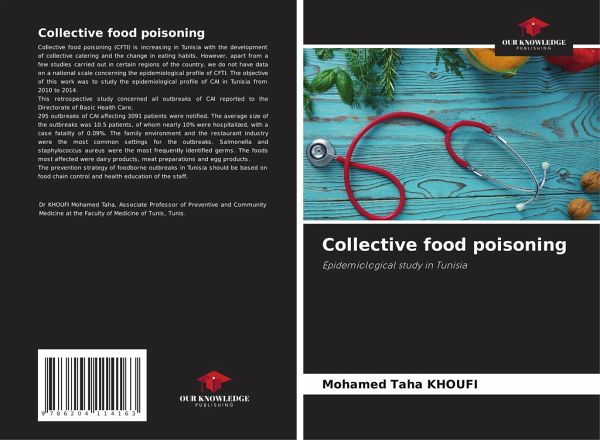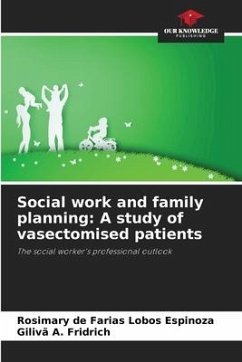
Collective food poisoning
Epidemiological study in Tunisia
Versandkostenfrei!
Versandfertig in 6-10 Tagen
27,99 €
inkl. MwSt.

PAYBACK Punkte
14 °P sammeln!
Collective food poisoning (CFTI) is increasing in Tunisia with the development of collective catering and the change in eating habits. However, apart from a few studies carried out in certain regions of the country, we do not have data on a national scale concerning the epidemiological profile of CFTI. The objective of this work was to study the epidemiological profile of CAI in Tunisia from 2010 to 2014. This retrospective study concerned all outbreaks of CAI reported to the Directorate of Basic Health Care.295 outbreaks of CAI affecting 3091 patients were notified. The average size of the ou...
Collective food poisoning (CFTI) is increasing in Tunisia with the development of collective catering and the change in eating habits. However, apart from a few studies carried out in certain regions of the country, we do not have data on a national scale concerning the epidemiological profile of CFTI. The objective of this work was to study the epidemiological profile of CAI in Tunisia from 2010 to 2014. This retrospective study concerned all outbreaks of CAI reported to the Directorate of Basic Health Care.295 outbreaks of CAI affecting 3091 patients were notified. The average size of the outbreaks was 10.5 patients, of whom nearly 10% were hospitalized, with a case fatality of 0.09%. The family environment and the restaurant industry were the most common settings for the outbreaks. Salmonella and staphylococcus aureus were the most frequently identified germs. The foods most affected were dairy products, meat preparations and egg products.The prevention strategy of foodborne outbreaks in Tunisia should be based on food chain control and health education of the staff.












